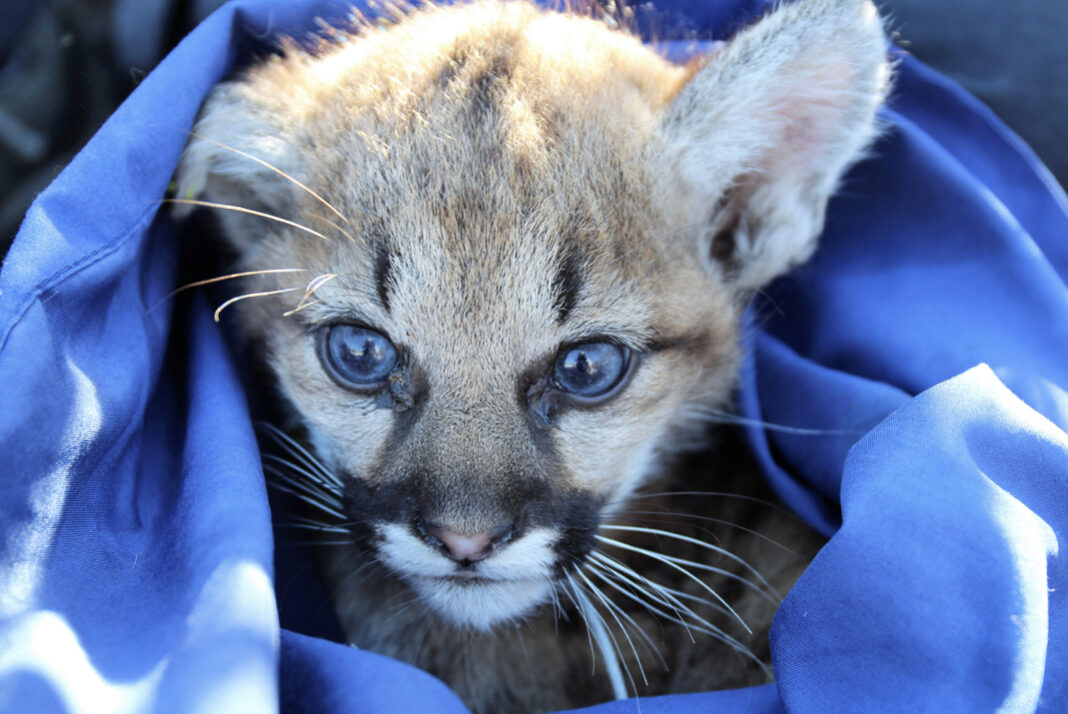SANTA MONICA—A necropsy report of two mountain lion kittens – who were found amongst a litter of four orphaned kittens last November in a Thousand Oaks office complex – tested positive for three different types of rat poison in their livers, according to a National Park Service (NPS) news release on April 13.
NPS biologists and the California Department of Fish and Wildlife (CDFW) found four orphaned kittens last November – P-100, P-101, P-102 and P-103 – who were fitted with tracking collars and had biological samples taken of them for NPS research. The kittens were reportedly around six weeks old; their mother was unknown and not being tracked by NPS.
The kittens were released back into a natural open space near where they were first discovered. They were monitored by biologists, who hoped their mother would return as they would not survive in the wild on their own, NPS officials indicated. The mother never returned and CDFW and NPS officials retrieved, then sent the kittens to a local veterinarian.
Two kittens, P-100 and P-102, died overnight, prompting a full postmortem examination, disease and toxicology testing. The two others, P-101 and P-103, survived and are now in captivity and the care of the Orange County Zoo in Irvine, the NPS release stated.
Results from P-100’s and P-102’s examinations found inflammation in their brains, detected parvovirus in numerous tissues as well as multiple anticoagulant rodenticides (AR) – brodifacoum, bromadiolone, and diphacinone – in their liver tissue.
The report revealed several firsts to NPS biologists, who have been conducting research on the mountain lion population of the Santa Monica Mountains since 2002.
“This is the first time a mountain lion in the park’s 20-year study has been affected by parvo, and these two kittens are the youngest mountain lions in the study to have anticoagulant rodenticides in their system,” leading biologist Jeff Sikich said. “31 of 32 mountain lions have tested positive for exposure to one or more AR’s, and seven have died directly from poisoning,” Sikich added.
According to the California Ecosystems Protection Act (A.B. 1788), over 75 percent of wildlife tested were exposed to rat poison. Governor Gavin Newsom signed A.B 1788 into legislation in September 2020, which prohibits the use of second-generation rodenticides containing the active ingredients brodifacoum, bromadiolone, difenacoum, and difethialone, in an attempt to stop the poisoning incidences of California’s wildlife.
Rodents are food for many wildlife species – mountain lions and other wildlife get exposed to rat poisons through secondary exposure and as it travels up the food chain.
According to environmental journalist Tara Lohan of The Revelator, cannabis farms that use anticoagulant rodenticides to protect their plants from rodents, have also been contributing to this toxic issue.
While exposure to rat poison does not always result in death, long-time exposure has been linked to other health problems for wildlife.
Anyone wanting to report complaints about second-generation anticoagulant rodenticide use can contact the local county agricultural commissioner by finding the number online or by calling 1-87PestLine (1-877-378-5463). For more information click here.






